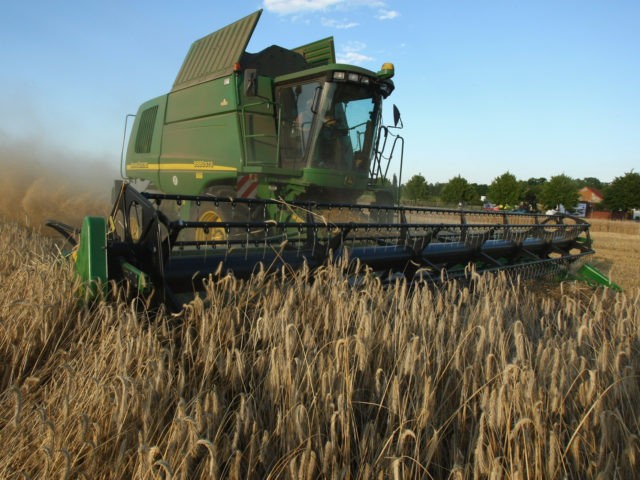While many enjoy European-reared beef, in many cases the crops that feed the animals while they grow come from Ukraine. Now, a senior EU official has warned the European agricultural sector is going to face serious ‘pain’ as a result of losing access to Ukrainian animal feed and fertiliser.
Long known colloquially as the breadbasket of Europe, Ukraine produces a significant percentage of the world’s market share of grains, including the likes of wheat, corn and barley, which Europe in part relies on to feed livestock.
However, as a result of the Russian invasion of the region, Europe has largely lost access to its Ukrainian supply.
“Ukraine and Russia between them account for over 30 per cent of world trade in wheat,” Michael Scannell — reportedly the second senior-most civil servant in the EU’s Agricultural Department — told the bloc’s Committee on Agriculture and Rural Development.
The Irishman went on to note that the two nations also are responsible for 32 per cent of the world’s corn, 17 per cent of its barley, and over half of the world’s share of Sunflower oil, seeds, and meals.
Follow live the AGRI Committee debate on the impact of Russia’s invasion of Ukraine on EU agricultural markets. https://t.co/U8Xhspk3xa
— AGRI Committee Press (@EP_Agriculture) February 28, 2022
However, Europe’s agricultural and food sectors have now suffered serious reductions in access to this market, a fact that Scannell describes as “extremely worrying” considering the level of reliance Europe has on what both countries produce for their own agricultural production.
The civil servant also noted that Russia — despite previous sanctions before the war — remained a major trade partner fo Europe in regards to “confectionary, wines, spirits, biscuits, flowers, etc” and that now, According to POLITICO, he believes that the international black sheep will now be disincentivised from engaging in this trade as a result of sanctions.
Worryingly, as POLITICO notes: “much of the EU’s meat and dairy industry relies on imported feed crops from Ukraine, and the bloc is also hooked on Russian gas and fertilizers.”
Short-term supply worries however are reportedly only compounded by the fact that, as a result of hostilities, the production of certain cereals will likely be disrupted in Ukraine, which risks extending the supply problem into the medium term.
The expectation is that the forthcoming summer sewings of corn will be disrupted,” he told the committee. “Clearly, with a war going on, it’s very very difficult to focus on these types of plantings.”
Bidenflation Meets Breadenflation? UK Bread Prices Set to Rise 20 Per Cent https://t.co/4eqw0f8hcQ
— Breitbart London (@BreitbartLondon) November 23, 2021
Scannell is not the first person to warn about the knock-on effect supply issues from Ukraine could have on European agriculture sectors.
Fears regarding a possible invasion of Ukraine has been driving up the price of wheat since autumn last year, with there being fears at one stage that the price of bread would rise by up to 20 per cent as a result of inflation.
However, issues regarding the supply of cereals are not the only problems now facing Europe, with the supply of livestock feed and fertilizer now also under threat as a result of the ongoing war.
Scannell also noted the reliance European agriculture has on Russian natural gas as being a cause for concern, with the hydrocarbon fuel being directly used in the production of fertiliser.
Despite all of these issues however, Scannell said that the problems faced regarding the current invasion would have to be weathered by the bloc, and that his department was committed to strengthening the EU’s food security.
“The Ukrainians are paying with their lives, not in Euros,” the civil servant said in agreement with another speaker, noting that “the security of Europe itself” was on the line.
“If we have to pay a price — and we will — we have to view it in that context,” he continued.
“The consequences of this Russian aggression will have a major impact on our agri-food sector, and it will be painful, but, we have to suffer that pain,” Scannell also told those gathered.

COMMENTS
Please let us know if you're having issues with commenting.